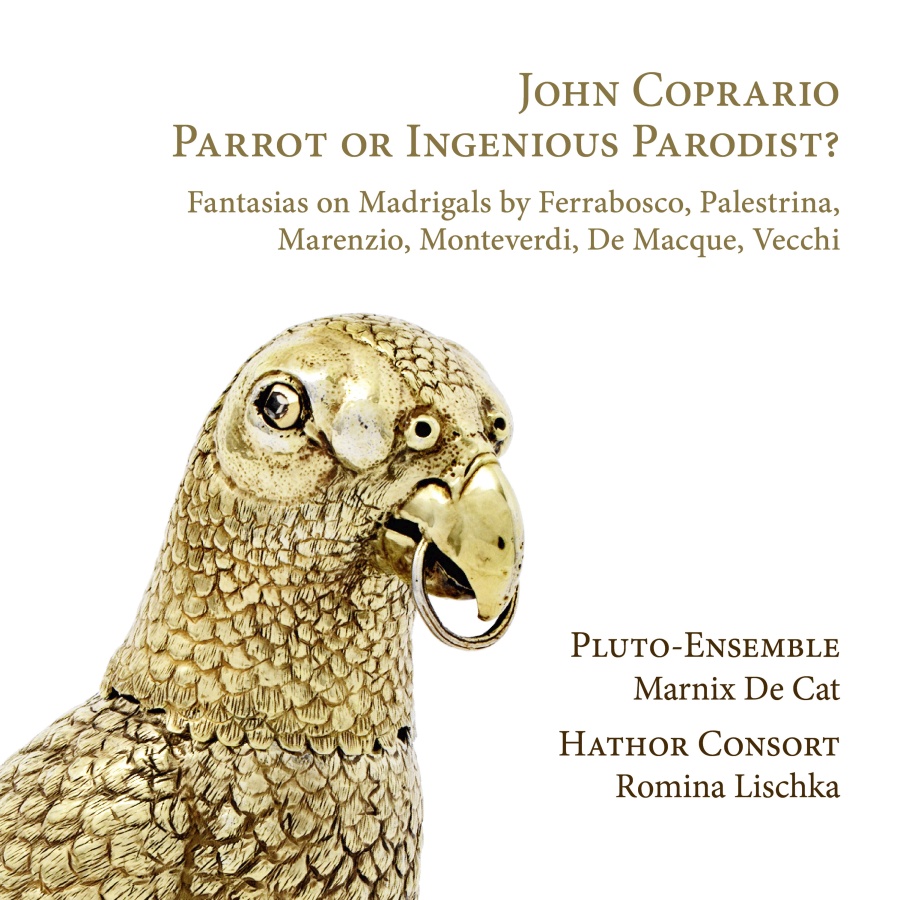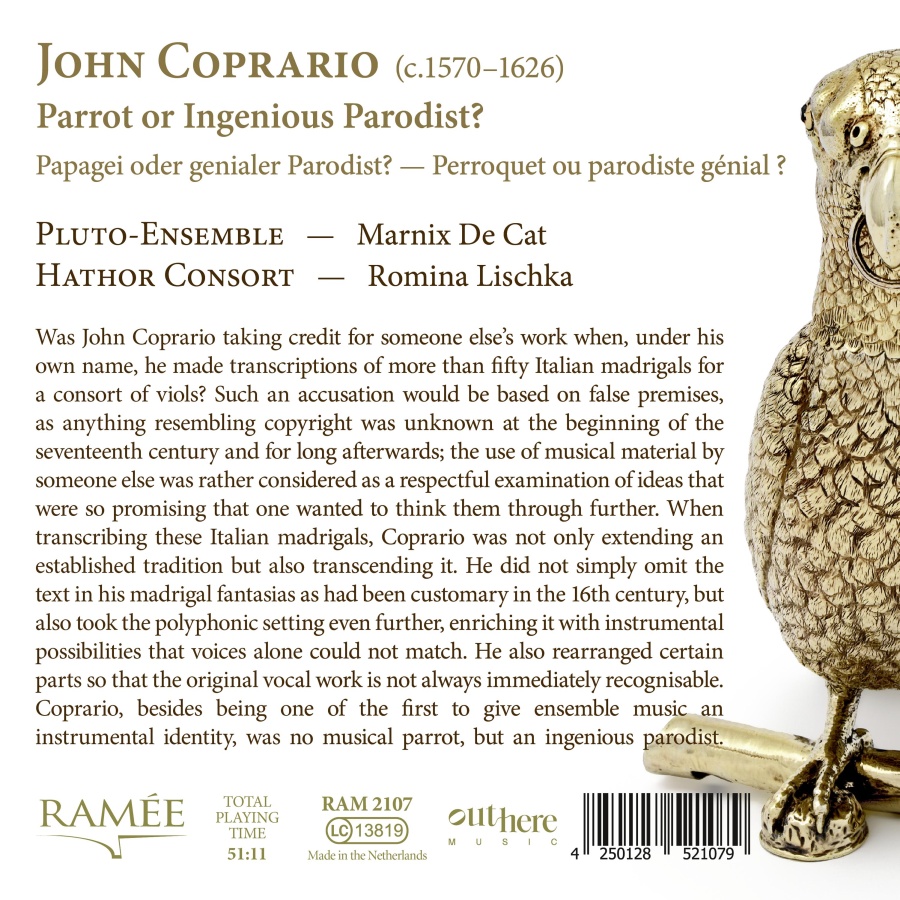
kompozytor
Coprario, John
tytuł
Coprario: Parrot or Ingenious Parodist ?
wykonawcy
Pluto-Ensemble;
Hathor Consort;
Lischka, Romina
Hathor Consort;
Lischka, Romina
nr katalogowy
RAM 2107
opis
Was John Coprario taking credit for someone else’s work when, under his own name, he made transcriptions of more than fifty Italian madrigals for a consort of viols? Such an accusation would be based on false premises, as anything resembling copyright was unknown at the beginning of the seventeenth century and for long afterwards; the use of musical material by someone else was rather considered as a respectful examination of ideas that were so promising that one wanted to think them through further. When transcribing these Italian madrigals, Coprario was not only extending an established tradition but also transcending it. He did not simply omit the text in his madrigal fantasias as had been customary in the 16th century, but also took the polyphonic setting even further, enriching it with instrumental possibilities that voices alone could not match. He also rearranged certain parts so that the original vocal work is not always immediately recognisable. Coprario, besides being one of the first to give ensemble music an instrumental identity, was no musical parrot, but an ingenious parodist.
nośnik
CD
gatunek
Muzyka klasyczna
producent
Ramée
data wydania
01-09-2022
EAN / kod kreskowy
4250128521079

(Produkt nie został jeszcze oceniony)
cena 79,00 zł
lubProdukt dostępny.
Wysyłka w ciągu 3 dni roboczych
Darmowa wysyłka dla zamówień powyżej 300 zł!
Darmowy kurier dla zamówień powyżej 500 zł!
sprawdź koszty wysyłki


























